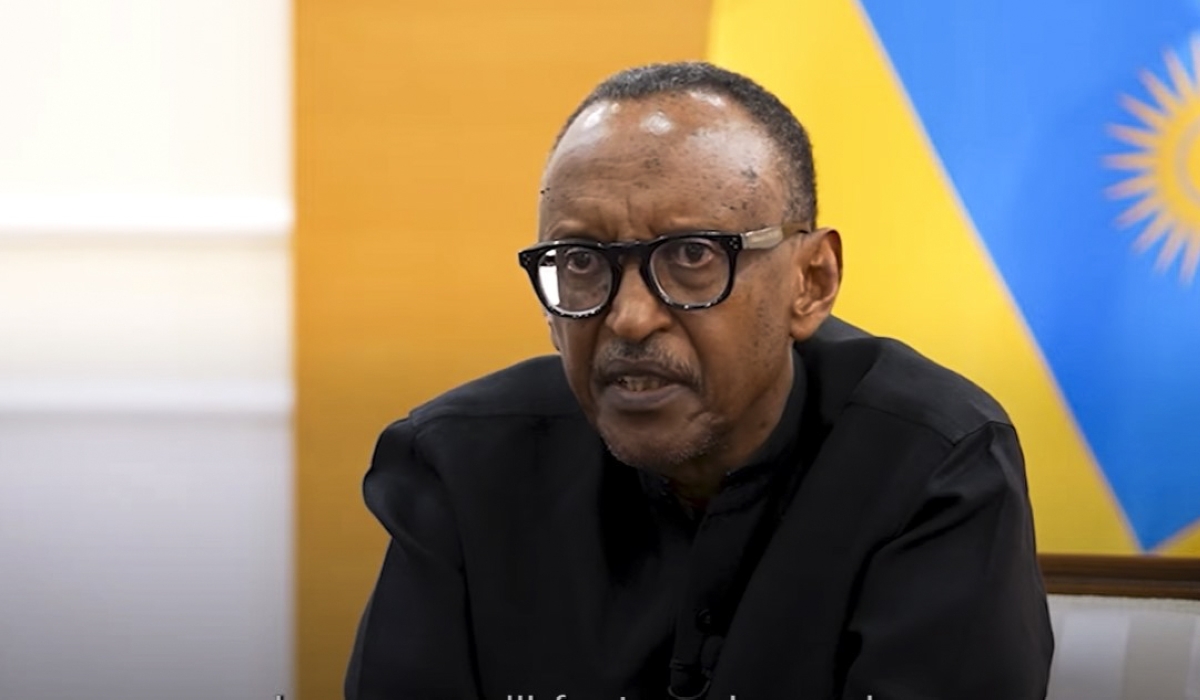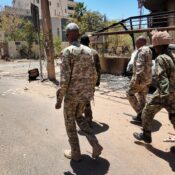
DR Congo crisis: Rwanda’s inescapable dilemma of ‘when you do, you’re damned, when you don’t, you’re damned’
In an interview with Jeune Afrique, President Paul Kagame said, “Between dealing with existential threats and dealing with threats to punish Rwanda, without a second thought, I will turn my guns to the existential threat.” Kagame was asked if he was worried about the prospect of sanctions and the potential withdrawal of foreign aid to Rwanda.
The Congolese army, FARDC, and other international and local actors continue to support the FDLR, a millitia associated with the 1994 genocide against the Tutsi, in their preparation and execution of attacks on Rwanda. This continues to be a persistent threat that cannot be disregarded.
Nonetheless, some people, for whatever reason, cannot see that the FDLR poses an existential threat to Rwanda in eastern DR Congo. Further complicating matters is DR Congo’s willful decision to maintain a faulty narrative that forces other players to overlook Rwanda’s concerns. The same faulty narrative has kept some people from comprehending the atrocities and injustices that drove thousands of Tutsis in the Congo to spend more than 25 years in refugee camps. Various people who have spoken out about the situation have reminded Rwanda to respect the DR Congo’s territorial integrity and sovereignty.
The premise of sovereign equality of states is the foundation of international law. As stated in the United Nations Charter, Article 2(1), nations are required to act, among other things, “on the principle of the sovereign equality of all its Members.” “The threat or use of force against the territorial integrity or political independence of any state” is forbidden under paragraph 4 of the same article. Article 51 does not, however, forbid states from exercising their inalienable right to self-defense, either alone or collectively.
Instances of the FDLR exploiting DR Congo territory as a safe haven to conduct attacks on Rwandan territory are abundantly evident. The fact that FARDC and the Force de Défense Nationale du Burundi (FDNB) are working with FDLR to combat the Alliance Fleuve Congo (AFC/M23), a rebellion fighting against oppression and poor governance, particularly against the persecution of Congolese Tutsis, has made this worse.
It is reasonable to argue that Rwanda has the right to implement some security measures, including the use of force, given this cooperation and the statements made by the presidents of Burundi and the Democratic Republic of the Congo, who stated their determination to topple the Rwandan government.
The concept of state sovereignty pertains to the ability and right to rule oneself. States are entitled to govern themselves free from outside intervention. It assumes that a territory, people, and government exist. One gains the authority to govern their territory by virtue of the existence of a government that exercises sovereignty. Thus, the actions of the current government are crucial to comprehending the degree to which state sovereignty can be upheld, even at the expense of other parties. I would contend that the way the Democratic Republic of the Congo is acting does not sufficiently reassure its neighbors, especially Rwanda, that they will not be interested in its domestic issues.
A state that has failed to stop its territory from being used as a base for attacks against its neighboring countries should be required by the foreign policy principle of good neighborliness, which aims to ensure that neighboring states maintain a peaceful coexistence, to work with those victim states in order to deal with those non-state actors. This is crucial because it would guarantee that the state posing the threat is not involved in the scheme to make the victim state unstable. Otherwise, a state that is the source of the threat runs the risk of appealing to the victim state’s right to self-defense if it is incapable or unwilling to regulate non-state actors who endanger the security of its neighbors and refuses to allow outside involvement. It should be easy to understand this.
Although states are thought to be equal and all states have sovereignty, international law is also concerned with the manner in which this sovereignty is used.
One of AU Agenda 2063’s most admirable goals is an Africa with effective governance. Africa’s peace and security depend on well-functioning individual African governments, but we also need improved cooperation between states and other non-state actors and international organizations. At a time when sovereignty is being questioned more and more, cooperation between various actors is crucial. Adhering to sovereignty and territorial integrity is clearly insufficient to combat cybercriminals and non-state armed groups that disregard territorial authority.
Rwanda has reached a number of agreements with the Democratic Republic of the Congo regarding the FDLR issue, none of which have been put into effect. However, these agreements were mediated and overseen by various nations and the United Nations, which today appears to be interested in flawed narratives for whatever reason.
I hope Rwanda will continue to fulfill its fundamental duty of ensuring that Rwandans’ right to be free from the genocide against the Tutsi is not violated. Thomas Dorfter describes the “organized hypocrisy of the international community” in his explanation of why UNSC “members generally prefer decisions over inaction.” As a result, they agree to compromises that are similar to the standard course of action in comparable emergency scenarios. However, a lack of interest continues to impede the implementation of these choices.”‘” Nowhere does such an argument make more sense than in the Democratic Republic of the Congo.
I no longer believe that, had there been the will, the FDLR could not have been overthrown by the DR Congo or the UN forces. They might as well have engaged in combat with them if they can find them to cooperate. This leads me to conclude that, despite the significance of international actors, the norm of good neighborliness should mandate that neighbors work together to settle cross-border conflicts.
Otherwise, it would be irresponsible to overlook thirty years of persistent bloodshed. Even while it is simple to feel sorry for the Congolese people who have been through this long, it is crucial that we put things in the right context. The international community and the Congolese government have the most responsibility because they have been present in the country for decades without having any beneficial effects. Unfortunately, the issue represents a glaring conundrum for Rwanda.
According to Walter Lippmann, “a nation is secure to the extent to which it is not in danger of having to sacrifice core values, if it wishes to avoid war, and is able, if challenged to maintain them by victory in such a war.”
For Rwandan social cohesion and national security, the unity of the country—to which the FDLR poses a threat—cannot and should not be jeopardized. Understanding that security encompasses more than just defending our interests and territory is crucial. The values of the people who comprise a nation are also important.
Because of the history of the genocide against the Tutsi, maintaining Rwandan unity is critically important. Additionally, tolerating an organization that is responsible for such a genocide poses a security risk.
All Categories
Recent Posts
Tags
+13162306000
zoneyetu@yahoo.com



